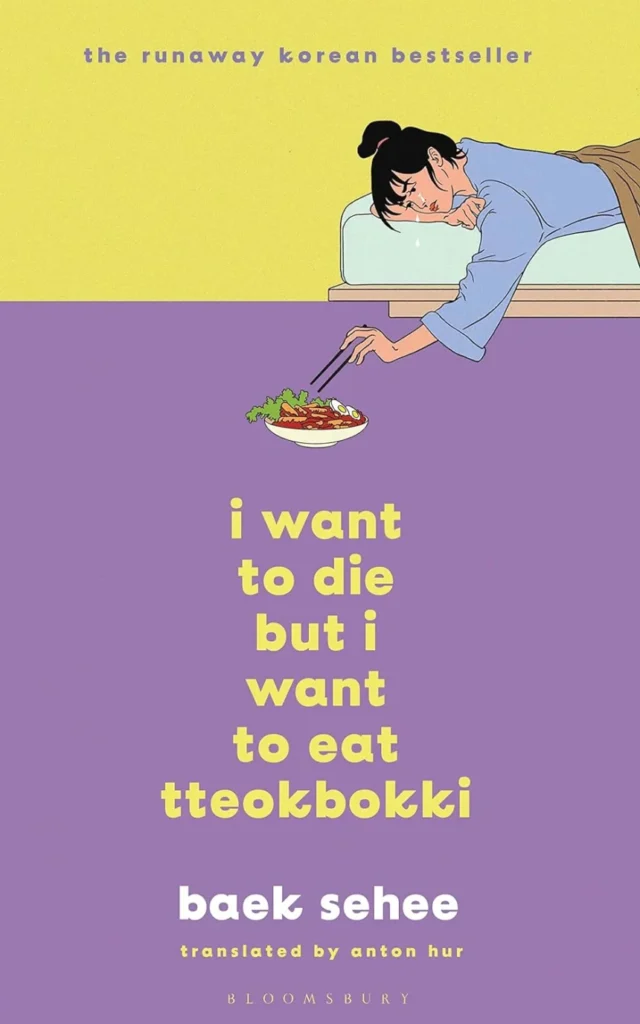
The world of literature and mental health advocacy has lost a brave and honest voice. Baek Se-hee, the South Korean author of the globally famous memoir, I Want to Die but I Want to Eat Tteokbokki, died on October 16, 2025. She was only 35 years old.
Her passing brought a wave of sorrow from fans around the world. These readers found comfort and understanding in her deeply personal writing. Baek’s book, which became a cultural event, opened up much-needed conversations about mental health and depression.
The Power of Her Simple, Honest Title
Baek Se-hee became a literary sensation with her 2018 memoir, I Want to Die but I Want to Eat Tteokbokki. The book’s title itself captured the feeling of living with chronic depression. It perfectly described the strange mix of feeling deep despair while still being drawn to the simple joys of life.
Tteokbokki is a popular Korean dish of chewy rice cakes in a spicy sauce. It represents comfort and simple happiness. The title showed the central conflict of her book: the human heart, even when it feels ready to give up, still wants a small piece of comfort and joy.
The book came from Baek’s own life. For ten years, she received psychiatric treatment for dysthymia. This is a mild but long-lasting form of depression. Her memoir gave a candid, unedited look at her therapy sessions. It included her conversations with her psychiatrist and personal essays. She wrote about her feelings of self-doubt, anxiety, and the hard work of healing.

The book quickly resonated with millions. It sold over a million copies worldwide. It has been translated into more than 25 languages. Its popularity was especially strong in South Korea, where talking about mental health is often seen as taboo. Baek’s honest writing made people feel less alone.
A Global Conversation Starter Baek Se-hee
Baek Se-hee’s writing career began in a simple way. She worked in a publishing house for five years after studying creative writing at university. She started sharing her therapy notes on a blog. The positive reactions from readers dealing with similar struggles surprised her.
She wrote about how powerful it was to know she had comforted someone simply by being honest. The book’s success helped to normalize the idea of going to therapy. It made the daily struggle with mental illness seem less scary and more acceptable to talk about.
Her English translator, Anton Hur, often praised Baek’s ability to connect with people. Hur noted that Baek wanted to build a bridge with her readers. She wanted her words to be a source of help and consolation. She definitely achieved that goal.
Baek Se-hee followed up her first book with a sequel in 2019, I Want to Die, but I Still Want to Eat Tteokbokki. This second book continued her journey toward self-acceptance. It explored themes of self-harm and overcoming deep-seated self-doubt. The sequel showed that the path to healing is long and requires constant effort.

Baek Se-hee: Final Act of Generosity Baek Se-hee
Baek Se-hee passed away at a hospital in Goyang, the city where she was born. While the exact cause of her death has not been officially released, reports stated she was declared brain-dead before her passing.
In a truly inspiring final act, Baek Se-hee became an organ donor. The Korea Organ Donation Agency announced that she donated her heart, lungs, liver, and kidneys. This final gift saved the lives of five people.
Her sister gave a statement through the hospital. It beautifully captured the essence of Baek’s life. The sister said that Baek wanted to share her heart with others through her writing. She also said she hoped Baek could now rest peacefully in heaven, knowing her gentle nature was incapable of hatred.
This final act of giving life matched the deep sense of empathy and connection that her books gave to the world. She continued to give light and hope, even in death.

A Lasting Impact Baek Se-hee
Baek Se-hee was a writer who showed incredible courage. She openly discussed her long battle with depression. Her vulnerability gave a voice to countless people who struggle in silence.
The outpouring of tributes online shows the huge impact she made. Many readers thanked her for making them feel seen and understood. Her work helped to take away the shame from mental health struggles. She created a global community where people could talk about their pain without feeling judged.
Her legacy is not just in the millions of copies her books sold. Her real legacy lives in the honest conversations she started. It lives in the comfort she gave to people who felt they were fighting alone. She showed everyone that even when you face your darkest feelings, you can still find a reason to enjoy the small, sweet parts of life.
The death of author Baek Se-hee at age 35 is a great loss. Her work, especially her famous memoir, I Want to Die but I Want to Eat Tteokbokki, became a landmark for mental health discussion. She used her words to connect millions of people through shared pain and shared hope. Her final act of organ donation shows her kind spirit and her lasting desire to help others. Her books will continue to inspire honesty and encourage readers everywhere to find their own small, sweet reasons to keep living.
Read Previous articles HERE, For More Articles Click HERE


